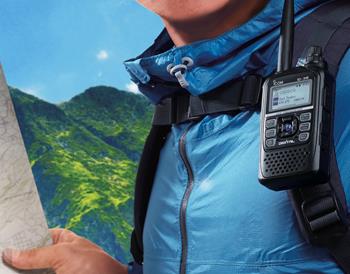What is the Amateur Radio Foundation Licence?
The Amateur Radio Foundation Licence gives everyone the opportunity to gain an understanding of the basic technology and operation of Amateur radios. After completion of a short test (a 26 question multiple-choice paper), the foundation licence gives you the opportunity to operate 25 watt radios on a variety of bands.
Many radio clubs across the country run the Foundation Licence course and a quick look at the
Radio Society of Great Britain (RSGB) website will provide you with the location of your nearest club, as well as further information on radio licenses. The course can also be offered online and a list of online coureses together with traditional courses offered by the clubs can be found in the
RSGB Course & exam finder.
Although not always possible, we recommend you take an in-person course at a club, usually run over one or two weekends long enough to cover the syllabus comfortably. There is a small amount of radio and electronics theory in the course but only enough for you to understand how to safely assemble your equipment, adjust an antenna, make your first contacts and then get the most out of your radio station. Safety is an important part of the training.
The course should last a total of 10-12 hours. Some courses will be run over a few weeks, perhaps some evenings and a final day to finish. However it is run, you will be able to sit a short multiple choice written assessment at the end of the course and come away with a pass certificate which will get you your callsign. Foundation licensees are permitted to use commercially manufactured transmitters and kits constructed in accordance with the supplied instructions. Higher licences such as the Intermediate and Full give the privilege of building equipment to your own designs, from magazine articles, or modifying second hand commercial equipment. Ex-commercial equipment is often sold at radio rallies for a small fraction of its original cost and provides a very cheap way of getting on the air.
The Foundation Licence is intended to be a 'starter' and most licensees will want to upgrade to the higher-grade licence. Extra freedom is an incentive for the Foundation licensee to upgrade, as are the extra transmit power and extra frequencies. Intermediate licensees may transmit at up to 100 watts of power, use frequencies above 440MHz. Full licensees may transmit up to 1000 Watts, and may, in certain circumstances, apply for special permission to run even higher powers equipment (e.g. for moon bounce or meteor scatter.)
I have previously completed the course myself to gain a greater understanding of Amateur Radio. I remember being impressed by the passion and enthusiasm of my tutors who explained radio theory in an easy, fun and straightforward way. More importantly, it has given me a useful insight into Amateur Radio.
When I did the course some time ago, there was a practical element with VHF and HF operation, which was very entertaining. This practical element is no longer assessed as part of the exam but is helpful for training and review. The course was well laid out, and study notes were provided, although I did pay for a course accompaniment, the training course handouts, assessment and administration, all of which came to a low price. It was extremely good value because you can't put a price on the cost of learning skills and development.
So who should take the Amateur Radio Foundation Course?
- Existing users - those who already have some radio experience can expand their knowledge into what might become a new hobby.
- Schools, air cadets and any other groups who might already have the opportunity to study from tutors and captains.
- Anybody between the ages of 5~90 who has an interest in science or engineering.
If you want to take the foundation course or want more details, visit the Radio Society of Great Britain website:
https://rsgb.org/main/clubs-training/for-students/foundation/. You will find up-to-date advice and links to websites offering training for this course.
Go on, give it a go!
Ian Lockyer (2E0IAJ)


